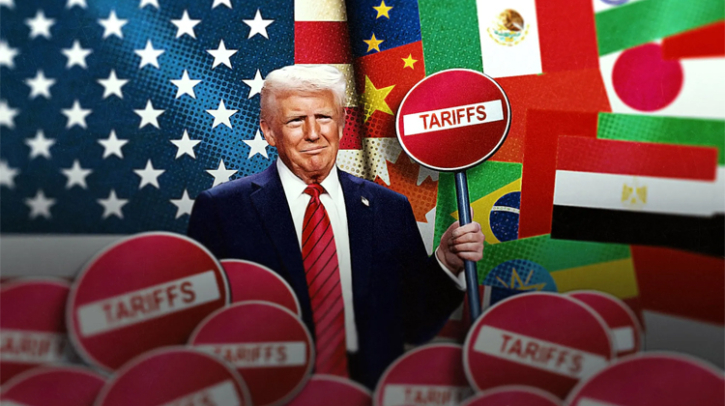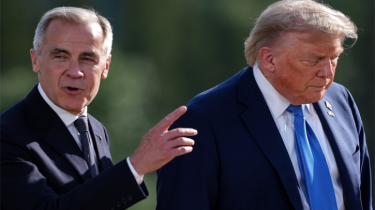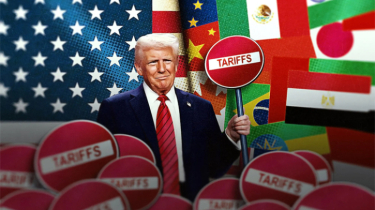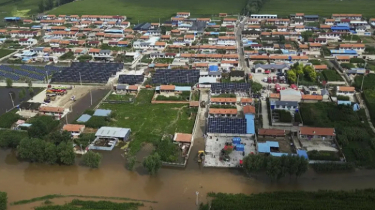Trump’s Global Tariff Blitz Sends Markets Tumbling

Published : 17:48, 1 August 2025
President Donald Trump signed an executive order late on July 31, imposing sweeping new U.S. import tariffs targeting 92 countries, with rates ranging between 10% and 41%, set to take effect on August 7. The announcement triggered sharp losses in global stock markets and stirred financial uncertainty worldwide.
Wall Street futures and equity markets across Asia and Europe plunged as investors retreated amid renewed fears of a full-scale global trade war. In the U.S., futures for the S&P 500, Nasdaq, and Dow dropped by nearly 1%, while Europe's Stoxx 600 index fell significantly. Asian markets saw their steepest weekly decline since April, with South Korea’s Kospi dropping nearly 3.5%, while Taiwan and Japan posted similar losses. European benchmarks followed suit with Germany’s DAX, France’s CAC 40, and the FTSE 100 all moving lower.
The new tariff plan includes a universal 10% minimum duty, with increased rates up to 41% targeting specific countries. Canada now faces a 35% tariff on selected goods, Switzerland was hit with one of the steepest rates at 39%, and countries like India and Taiwan are set to face tariffs of 25% and 20%, respectively. South Africa faces 30% tariffs, while some Southeast Asian nations negotiated reduced rates around 19–20%. The changes elevate the U.S. average effective import duty rate from about 2.3% to nearly 15%, marking the most aggressive shift in American trade policy since the 1930s. Financial markets reacted swiftly, with equities falling, currencies fluctuating, and investors moving to safer assets.
The Swiss franc, Indian rupee, and South Korean won came under pressure, while the U.S. dollar index rose slightly. In India, the Sensex fell over 150 points and the Nifty dropped below 24,750. These developments come ahead of the July U.S. jobs report, which could influence the Federal Reserve’s next move on interest rates. Analysts now anticipate diminished chances for a September rate cut as inflation risks rise. The global economy is bracing for heightened trade tensions and the disruptive consequences they may bring across supply chains, commodity flows, and monetary policy expectations.
Sources:
Reuters, Financial Times, Associated Press, The Guardian, The Independent, The Times, Investors Business Daily











